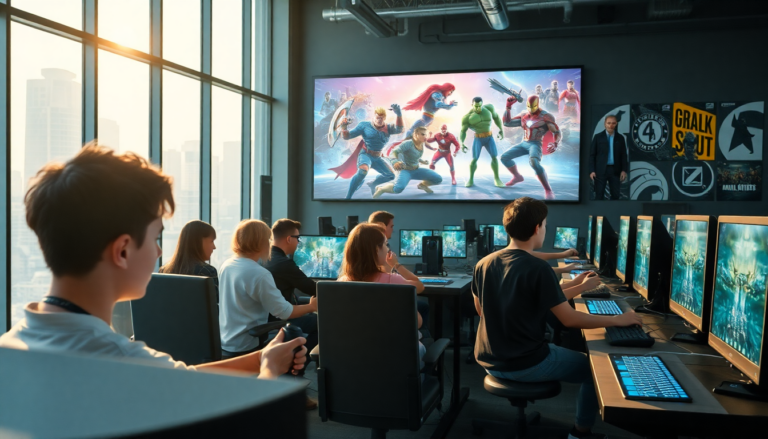Argomenti trattati
In the gaming world, the concept of crossovers has become a significant aspect of player engagement and brand collaboration. Initially, games operated in isolation, but as the industry evolved, this landscape shifted dramatically. The rise of titles like Fortnite has showcased the power and popularity of crossovers, leading to a new era of gaming.
The early days of gaming crossovers
In the early gaming era, crossover events were virtually non-existent. Each game was a standalone experience, with little to no interaction with other titles. Players enjoyed classic games, yet the idea of merging universes or characters seemed far-fetched. However, this changed over time as developers began to see the potential benefits of collaborations.
First steps towards collaboration
The first notable attempts at crossovers occurred in the late 90s and early 2000s. Games like Super Smash Bros. introduced characters from various franchises into one competitive environment. This marked a pivotal moment where players could see their favorite characters interact, creating a unique experience.
The turning point: Fortnite and the crossover phenomenon
Fast forward to 2017, when Fortnite burst onto the scene. Initially, it was just another battle royale game, but its ability to integrate characters from various franchises set it apart. Imagine playing as iconic figures from Marvel or DC, or even popular animated characters, all within a single game. This was revolutionary.
The role of influential figures
Behind the scenes, notable figures played a crucial role in persuading developers to embrace this new direction. The Russo brothers, known for their work with Marvel, were instrumental in pushing for character integrations. Their discussions with Epic Games’ creative officers led to the groundbreaking inclusion of characters like Thanos, transforming Fortnite into a cultural phenomenon.
The impact of crossovers on gameplay and culture
Crossovers have not only changed how games are played but also how they are marketed. Players are now drawn to games that promise exciting collaborations, leading to increased engagement and community interaction. The blending of gaming with popular culture creates a rich tapestry of experiences that attract a broader audience.
Future possibilities
Looking ahead, the continued evolution of crossover content is inevitable. As technology advances and the gaming community grows, the potential for more complex integrations increases. Imagine a world where characters from every facet of entertainment can unite in a single gaming experience.
Common pitfalls and considerations
While the allure of crossovers is strong, developers must navigate potential pitfalls. Overloading a game with too many characters can dilute the experience, making it feel chaotic rather than cohesive. Balance is crucial to ensure that the core gameplay remains engaging while still offering the thrill of familiar faces.
Best practices for effective crossovers
- Maintain the integrity of each character’s unique abilities and story.
- Ensure that the crossover feels organic within the game’s universe.
- Engage the community during the development process for feedback.
Conclusion: A new standard in gaming
The gaming industry has witnessed a significant transformation with the advent of crossovers. What began as isolated experiences has now evolved into interconnected worlds where characters from diverse franchises coexist. As we continue to embrace this new era, players can look forward to even more thrilling collaborations that redefine the gaming experience.

